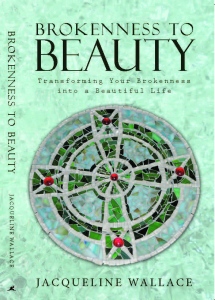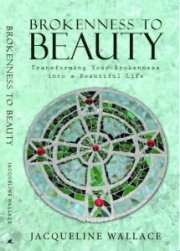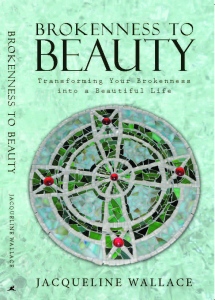Home. The place where we can rest and relax from all the pressures of the outside world. A safe place. Or it should be these things. We need this kind of home. A place we want to come back to at the end of the day.
When I was a young wife I knew I wanted our home to be a place Randy wanted to come to at the end of the day. I wanted it to be the place where he knew he was loved and accepted, safe; a place where no protective defenses had to be kept up. The world can sometimes be harsh; home should never be.
Of course, making such a home has been a learning experience for two imperfect and very different people. After more than forty years of marriage, we are still learning. But it has been deeply gratifying to hear Randy say at times how he likes coming home and being at home, being with me. Kudos and more to God, the giver of grace to both of us!
We need a gracious place called home, but a new dimension of home and a place of rest struck me when, a few weeks ago, a friend read to me Isaiah 66:1, 2:
Thus says the Lord,
“Heaven is My throne and the earth is My footstool.
Where then is a house you could build for Me?
And where is a place that I may rest?
“For My hand made all these things,
Thus all these things came into being,” declares the Lord. (Isaiah 66:1, 2a, NASB)
The phrase that got my attention? “And where is a place that I may rest?” (Literally, “where is My resting place?”) God posed this question to his people, the Jewish nation, in the time of Isaiah the prophet.
Of course, God, who made the heavens and the earth and all in them, cannot be contained in a physical space. He made all things. There is no place worthy of his resting place. And how is it the God, who never grows weary or tired, desires a resting place (Isaiah 40:28)? Must be something more to this than meets the eye.
Very early in the biblical record we read that at the end of God’s creative process of making the heavens and earth and everything in them, including mankind, he rested:
Thus the heavens and the earth were completed, and all their hosts. By the seventh day God completed His work which He had done, and He rested on the seventh day from all His work which He had done. Then God blessed the seventh day and sanctified it, because in it He rested from all His work which God had created and made. (Genesis 2:1-3, NASB)
In the book of Hebrews we read that God has a rest prepared for those who believe and obey him.
Therefore, let us fear if, while a promise remains of entering His rest, any one of you may seem to have come short of it. For indeed we have had good news preached to us, just as they also;[1] but the word they heard did not profit them, because it was not united by faith in those who heard. For we who have believed enter that rest, just as He has said, “As I swore in My wrath, They shall not enter My rest,” although His works were finished from the foundation of the world. For He has said somewhere concerning the seventh day: “And God rested on the seventh day from all His works”; and again in this passage, “They shall not enter My rest.” Therefore, since it remains for some to enter it, and those who formerly had good news preached to them failed to enter because of disobedience, He again fixes a certain day, “Today,” saying through David after so long a time just as has been said before,
“Today if you hear His voice,
Do not harden your hearts.”
For if Joshua had given them rest, He would not have spoken of another day after that. So there remains a Sabbath rest for the people of God. For the one who has entered His rest has himself also rested from his works, as God did from His. Therefore let us be diligent to enter that rest, so that no one will fall, through following the same example of disobedience. (Hebrews 4:1-11, NASB, emphasis added)
The Israelites heard God’s good news, given through Moses. They had his promises given them, but as a people they did not obey God’s words. They missed God’s rest.
When someone hears the gospel of Jesus Christ and responds in belief and obedience, they enter God’s rest. Our “work” of seeking salvation is only “finished” in Jesus Christ, God in the flesh, whose work on Calvary’s cross made possible salvation for all mankind. That salvation is made effectual in those who trust in the name of Jesus Christ for their eternal salvation. This is the rest of God, designated for all those who put their faith in him through Jesus Christ. The work of God, both in creation and salvation, has been completed. God has rested from his work. It is finished. Through faith in him and his word, we too can enter his rest.
Yes, there is certainly more here than meets the eye. All of scripture consistently declares the same truth. The more I read it, the more the pieces, like a puzzle, come together and the whole picture is revealed, little by little.
So we can “enter” God’s rest when we trust Jesus Christ for our eternal salvation, but where is the place of God’s rest, as he asked in Isaiah 66:1? Where is the place he can call “home”? He told us heaven is his throne and earth his footstool and these places are not his place of rest. We are still at a loss to figure out where God’s resting place is located. Until we read verse 2b:
“But to this one I will look,
To him who is humble and contrite of spirit, and who trembles at My word. (Isaiah 66:2b, NASB)
This is not one isolated verse. Consider these puzzle pieces:
For thus says the high and exalted One
Who lives forever, whose name is Holy,
“I dwell on a high and holy place,
And also with the contrite and lowly of spirit
In order to revive the spirit of the lowly
And to revive the heart of the contrite.” (Isaiah 57:15, NASB)
The one who can dwell with God is typified by these characteristics and behaviors:
O Lord, who may abide in Your tent?
Who may dwell on Your holy hill?
He who walks with integrity, and works righteousness,
And speaks truth in his heart.
He does not slander with his tongue,
Nor does evil to his neighbor,
Nor takes up a reproach against his friend;
In whose eyes a reprobate is despised,
But who honors those who fear the Lord;
He swears to his own hurt and does not change;
He does not put out his money at interest,
Nor does he take a bribe against the innocent.
He who does these things will never be shaken. (Psalm 15, NASB)
Who may ascend into the hill of the Lord?
And who may stand in His holy place?
He who has clean hands and a pure heart,
Who has not lifted up his soul to falsehood
And has not sworn deceitfully.
He shall receive a blessing from the Lord
And righteousness from the God of his salvation. (Psalm 24:3-5, NASB)
He does not delight in the strength of the horse;
He does not take pleasure in the legs of a man.
The Lord favors those who fear Him,
Those who wait for His lovingkindness. (Psalm 147:10-11, NASB)
When Jesus saw the crowds, He went up on the mountain; and after He sat down, His disciples came to Him. He opened His mouth and began to teach them, saying,
“Blessed are the poor in spirit, for theirs is the kingdom of heaven.
“Blessed are those who mourn, for they shall be comforted.
“Blessed are the gentle, for they shall inherit the earth.
“Blessed are those who hunger and thirst for righteousness, for they shall be satisfied.
“Blessed are the merciful, for they shall receive mercy.
“Blessed are the pure in heart, for they shall see God.
“Blessed are the peacemakers, for they shall be called sons of God.
“Blessed are those who have been persecuted for the sake of righteousness, for theirs is the kingdom of heaven.
“Blessed are you when people insult you and persecute you, and falsely say all kinds of evil against you because of Me. Rejoice and be glad, for your reward in heaven is great; for in the same way they persecuted the prophets who were before you. (Matthew 5:1-12, NASB)
“Not everyone who says to Me, ‘Lord, Lord,’ will enter the kingdom of heaven, but he who does the will of My Father who is in heaven will enter. …“Therefore everyone who hears these words of Mine and acts on them, may be compared to a wise man who built his house on the rock. And the rain fell, and the floods came, and the winds blew and slammed against that house; and yet it did not fall, for it had been founded on the rock. Everyone who hears these words of Mine and does not act on them, will be like a foolish man who built his house on the sand. The rain fell, and the floods came, and the winds blew and slammed against that house; and it fell—and great was its fall.” (Matthew 7:21, 24-27, NASB)[2]
God will make his home, his place of rest, in those who love and fear him, those who obey his word and trust in him. He sent his Holy Spirit to live within each one who trusts and obeys Jesus Christ. This was his desire and design from the creation. He will faithfully follow it to its culmination:
I heard a loud voice from the throne, saying, “Behold, the tabernacle of God is among men, and He will dwell among them, and they shall be His people, and God Himself will be among them,
And we get the best end of the deal, I think.
and He will wipe away every tear from their eyes; and there will no longer be any death; there will no longer be any mourning, or crying, or pain; the first things have passed away.”
And He who sits on the throne said, “Behold, I am making all things new.” And He said, “Write, for these words are faithful and true.” Then He said to me, “It is done. I am the Alpha and the Omega, the beginning and the end. I will give to the one who thirsts from the spring of the water of life without cost. He who overcomes will inherit these things, and I will be his God and he will be My son. (Revelation 21:4-7, NASB)
Come, Lord Jesus. May you find a home, a resting place in us now and forever.
New American Standard Bible (NASB) Copyright © 1960, 1962, 1963, 1968, 1971, 1972, 1973, 1975, 1977, 1995 by The Lockman Foundation. https://www.biblegateway.com
[1] The Israelites, the Jewish nation
[2] All emphases in verses added.





